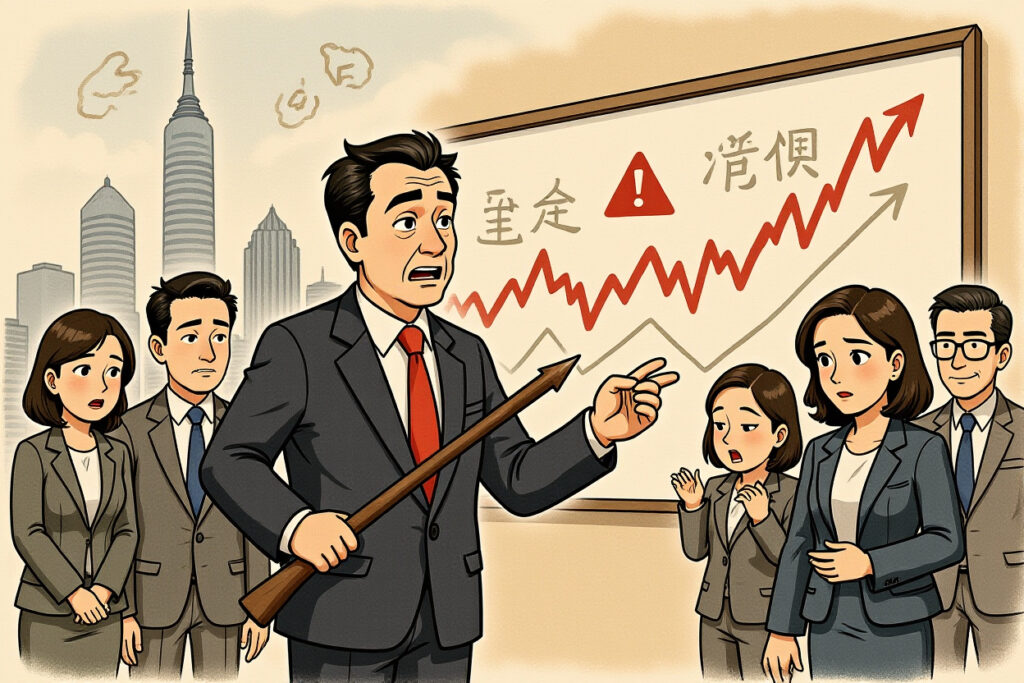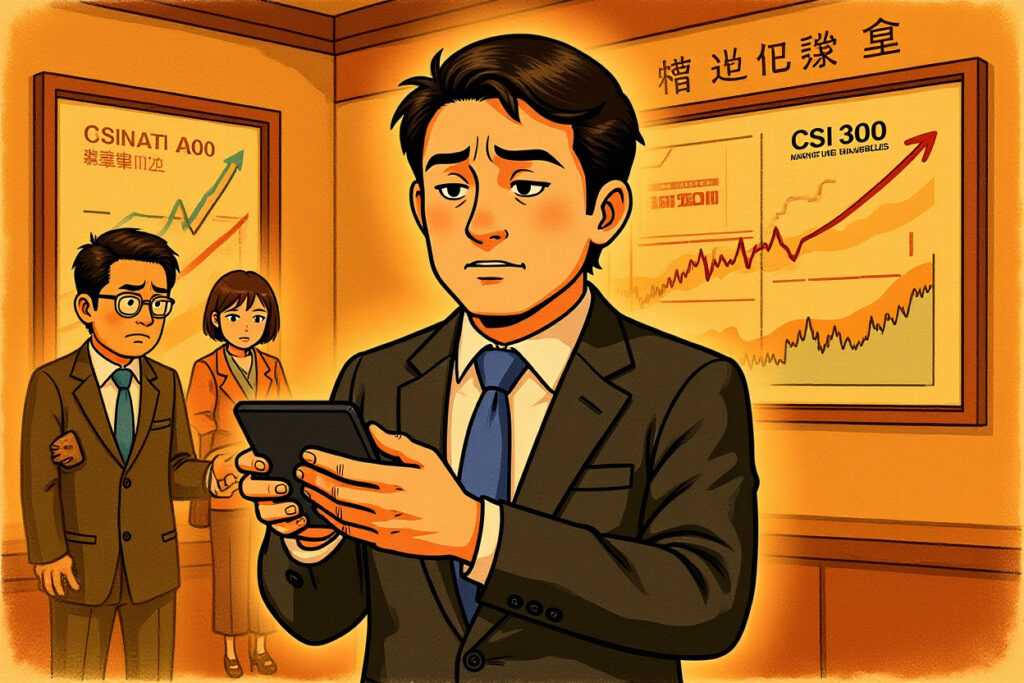Market Veteran Sounds Alarm on Leveraged Trading Risks
Renowned Chinese market commentator Li Daxiao (李大霄) issued stark warnings about leveraged stock trading during the recent Phoenix Bay Area Financial Forum 2025. The former chief economist at Yingda Securities emphasized that investors must exercise extreme caution when using leverage in current market conditions, particularly as China’s equity markets navigate periods of heightened volatility.
Key Forum Highlights and Immediate Market Impact
Speaking ahead of the formal proceedings, Li stressed that while China’s stock market will experience inevitable fluctuations, the long-term trajectory remains positive through what he described as a spiral upward movement. His comments come as the Shanghai Composite Index has shown increased volatility, with retail investor participation reaching concerning levels among inexperienced traders.
The Perils of Leveraged Trading in Chinese Equities
Leveraged trading represents one of the most significant risks for individual investors in China’s equity markets. Margin trading and other forms of leverage have grown substantially in popularity, particularly among younger, less experienced market participants seeking accelerated returns.
Current Leverage Levels and Regulatory Environment
According to recent data from the Shanghai Stock Exchange (上海证券交易所), margin debt outstanding has reached approximately 1.2 trillion yuan, representing a 15% increase from the previous year. The China Securities Regulatory Commission (中国证券监督管理委员会) has implemented several measures to curb excessive leverage, including increasing margin requirements for certain volatile stocks and implementing stricter eligibility criteria for margin trading accounts.
Quality Over Speculation: Investment Philosophy for Current Markets
Li Daxiao emphasized the critical importance of focusing on quality companies with strong fundamentals rather than speculative trading. This approach becomes particularly crucial during periods of market uncertainty when lower-quality stocks tend to experience more severe price corrections.
Identifying Sustainable Investment Opportunities
– Companies with consistent revenue growth and profit margins
– Enterprises with manageable debt levels and strong cash flow
– Businesses operating in sectors aligned with national strategic priorities
– Firms with transparent governance and shareholder-friendly policies
Educational Imperative: Why Knowledge Trumps Quick Gains
Li’s comments about students returning to education underscore a broader concern about financial literacy in China’s retail investing community. The proliferation of trading apps and social media investment advice has created an environment where many participants lack fundamental understanding of market mechanics and risk management.
Building Sustainable Investing Knowledge
Financial education remains a critical component of long-term investment success. The China Securities Regulatory Commission has launched several initiatives to improve investor education, including mandatory risk disclosure requirements and educational programs through securities companies. These efforts aim to create a more informed investor base capable of making prudent decisions in various market conditions.
Market Outlook: Navigating Short-Term Volatility with Long-Term Perspective
Despite current challenges, Li maintains a cautiously optimistic long-term view of Chinese equity markets. His spiral上升 (spiral rise) theory suggests that while markets will experience periods of decline, the overall trajectory points upward when viewed through a multi-year lens.
Sector Opportunities and Risk Considerations
Several sectors show particular promise for long-term investors, including renewable energy, technology innovation, and consumer upgrading. However, investors must remain selective within these sectors, focusing on companies with sustainable competitive advantages and reasonable valuations. The ongoing economic transition creates both opportunities and risks that require careful analysis and disciplined investment approaches.
Strategic Recommendations for Professional Investors
For institutional investors and wealth managers, Li’s warnings highlight the importance of robust risk management frameworks and client education. The current environment demands more active position monitoring and stress testing of portfolios under various market scenarios.
Implementing Protective Measures
– Establish clear leverage limits based on risk tolerance assessments
– Implement systematic hedging strategies using derivatives and other instruments
– Maintain adequate liquidity reserves to meet margin requirements during downturns
– Diversify across sectors and market capitalizations to reduce concentration risk
Forward-Looking Market Guidance and Risk Management
As China’s markets continue to develop and mature, investors must adapt to changing regulatory environments and market dynamics. The fundamental principles of prudent investing remain constant: thorough research, disciplined execution, and appropriate risk management. While opportunities abound in Chinese equities, success requires avoiding the temptation of excessive leverage and maintaining a long-term perspective focused on quality companies with sustainable business models.
Investors should consult with qualified financial advisors and conduct independent due diligence before making investment decisions. The current market environment rewards patience and discipline while punishing speculation and excessive risk-taking. By focusing on fundamental analysis and maintaining appropriate risk controls, investors can navigate market volatility while positioning for long-term success in Chinese equity markets.




